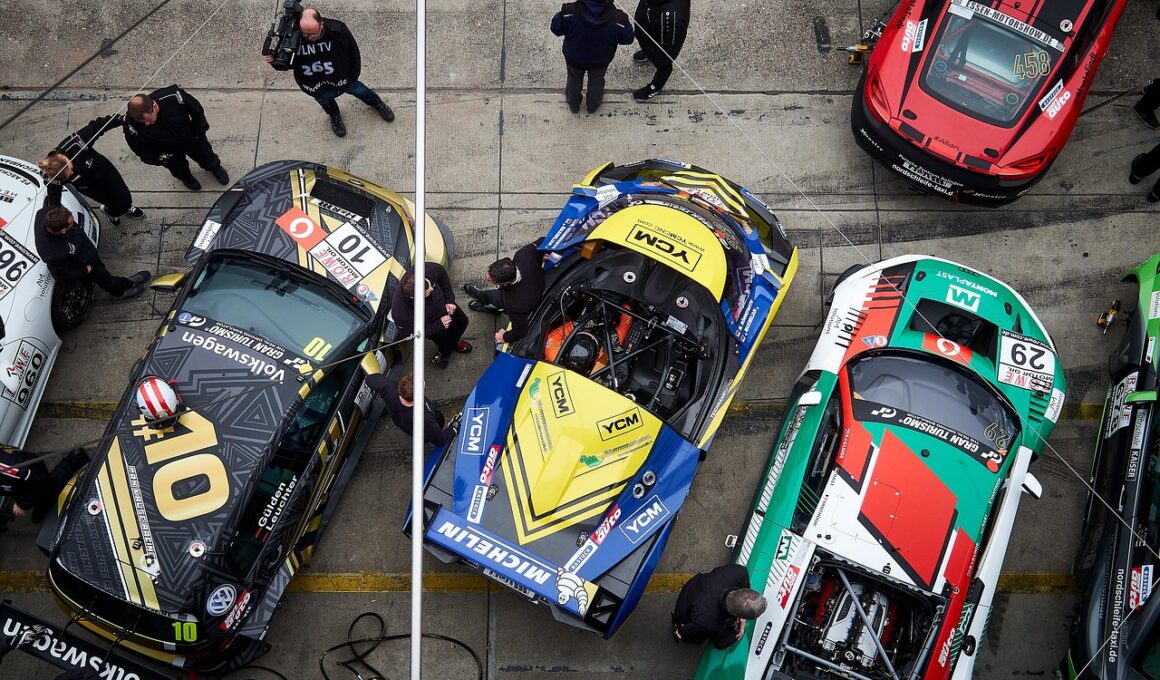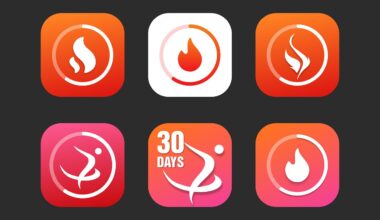Psychological Recovery Techniques After Motorsport Competitions
Motorsport is a high-pressure sport that demands intense physical and mental performance. After competitions, athletes often experience the residual effects of stress. Psychological recovery is essential for them to regain focus and performance levels. Various techniques can help improve mental resilience after competition, helping athletes return to their peak swiftly. One primary technique is mindfulness, where drivers can engage in deep breathing exercises. These exercises promote relaxation and decrease anxiety, enabling athletes to detach from competition stress. Including visualization techniques can also be beneficial as they allow drivers to mentally rehearse future races and outcomes. Another important technique is to engage in physical activity that does not involve motorsport, such as light jogging or yoga. This helps to reset athletes’ mental states while providing a physical outlet. Moreover, establishing a strong support network with peers encourages sharing experiences, which can help alleviate feelings of isolation and stress. Lastly, journaling can be a very effective tool, enabling drivers to articulate their emotions and thoughts. These methods foster a holistic approach to recovery, ensuring athletes are equipped mentally for the challenges ahead.
Importance of Rest and Recovery
Rest is often undervalued in motorsport. Understanding the psychological benefits of proper rest can enhance recovery processes significantly. After intense competition, the brain requires downtime, just like the body. Drivers might engage in relaxation techniques such as meditation or simply enjoy leisure activities. Implementing a balanced schedule enables athletes to recharge mentally, aiding in the reflection of their performance. Taking a break also allows time for self-evaluation, providing insights into areas for improvement. Emotional recovery includes accepting both successes and failures, allowing personal growth. Furthermore, engaging in restful activities, such as reading or connecting with friends, can bring joy and shift attention away from racing pressures. It also cultivates a supportive atmosphere during recovery, which enhances mood and mental stability. The impact of rest has been studied extensively, revealing that proper recuperation improves overall performance long-term. By prioritizing downtime after competitions, athletes find themselves better prepared for subsequent challenges. Therefore, fostering a culture that values recovery helps form a sustainable career in motorsport, where mental health is as vital as physical readiness for success.
Incorporating positive affirmations into the recovery routine also provides a significant boost in mental health. During high-stress environments that motorsport exposes participants to, fostering a positive mindset is crucial. Positive affirmations help in reinforcing self-belief, allowing athletes to challenge negative thoughts that may arise post-competition. Constructing personalized affirmations can aid drivers in counteracting doubts, focusing on strengths rather than losses. For example, reminding oneself of past achievements fosters confidence. Additionally, it’s essential for athletes to embrace patience during their recovery. Instant results should not be expected, as mental recovery takes time, just like physical recovery. Acknowledging their progress can motivate athletes to continue with their recovery journey. Crafting a list of goals related to both mental and physical aspects encourages focus on the future and builds a recovery plan. Engaging support groups with other competitors can facilitate shared experiences and promote understanding of the psychological aspects of motorsport. Ultimately, adopting these strategies will empower athletes and enhance their resilience, leading to improved performance outcomes.
Another crucial aspect of psychological recovery is nutrition. The dietary choices made post-competition significantly influence an athlete’s mental state. Consuming a balanced diet rich in antioxidants, omega-3 fatty acids, and vitamins is key to maintaining cognitive function and mood stability. Foods like fruits, vegetables, fish, and nuts play an integral role in overall health. Moreover, staying hydrated after competition restores energy levels and supports optimal brain function. Avoiding excessive alcohol and caffeine intake is critical as both substances can negatively impact recovery. Instead, athletes should aim for herbal teas or natural juices that contribute to hydration and nourishment. Meal planning forms an essential part of the recovery strategy, ensuring that nutritious options are readily available. Alongside proper nutrition, sleep quality also plays a role in recovery. Establishing a sleep routine reinforces the importance of getting ample rest, allowing the body to heal effectively. In combination, these elements contribute to a comprehensive recovery strategy, fortifying athletes mentally, and physically, enabling them to face future challenges head-on. Nutrition and sleep act as tools that enhance resilience, setting up drivers for long-term success in motorsport.
Establishing a routine during recovery can help athletes feel more in control and focused. Maintaining consistency in post-competition rituals provides stability during the recovery period. Routines can include activities, such as stretching, reviewing race footage, or engaging in mindfulness exercises. By sticking to this established routine, competitors can re-engage with their sport positively, easing anxiety linked to performance. Regular interactions with coaches and support personnel following competitions create opportunities to analyze performance comprehensively and set realistic goals. This feedback process helps eliminate uncertainties and emphasizes continuous improvement. Furthermore, organizers must consider workshops or seminars dedicated to mental health in motorsport coaching. These programs promote awareness and offer valuable resources to drivers. Learning about psychological recovery techniques from experienced professionals can provide innovative insights. Incorporating rest, nutrition, and routine further strengthens athletes’ mental resilience. All these aspects synergize to cultivate a robust mental framework that empowers drivers to develop not just as athletes but as well-rounded individuals. The connection between mental health and high-performance driving is intertwined, demonstrating that effective recovery extends beyond the racetrack.
Furthermore, developing coping strategies is vital for managing post-race emotions. Motorsport can be emotionally draining, exposing participants to various feelings, including disappointment or frustration. Athletes should be encouraged to identify their emotional triggers to effectively manage their reactions. For instance, using techniques such as deep breathing, counting, or stepping away from the situation can diffuse intense feelings, allowing for clearer thinking. Practicing emotional regulation enhances the ability to respond appropriately under pressure. Engaging in creative outlets, such as art or music, can also facilitate emotional expression and processing. Encouraging competitors to embrace their emotions, rather than suppressing them, builds resilience. Regular exercises in stress management, such as guided imagery or PMR (Progressive Muscle Relaxation), can also boost athletes’ mental strength. Each element contributes to a cumulative effect, promoting emotional stability and readiness. In summary, psychological recovery must not be overlooked in motorsport coaching. Emphasizing these techniques develops a holistic approach to enhancing athletes’ performance, ensuring both short- and long-term success. Coaches’ support in integrating these practices into training fosters a culture where mental well-being is prioritized alongside technical skill development.
In conclusion, psychological recovery is a multifaceted process that requires dedicated focus within motorsport coaching. Techniques like mindfulness, positive affirmations, nutrition, and emotional regulation all create a comprehensive framework for recovery. It’s essential for coaching staff to integrate these methods into training programs. By fostering a supportive environment and promoting recovery strategies, athletes will benefit tremendously. Having accessibility to resources and tools empowers drivers to navigate the challenges of motorsport effectively. Thus, the commitment to mental health contributes significantly to athletes’ overall performance and endurance. Such proactive measures can foster athletes’ self-awareness and reinforce their mental capabilities, which are vital components for sustainable success in high-stakes environments. Ongoing education on mental health and recovery methods is necessary to ensure everyone stays informed. Recognizing the significance of psychological recovery techniques establishes a culture among competition teams that emphasizes well-being. Motorsport coaching must embrace this holistic approach, guaranteeing that mental and physical health comingle to form an unstoppable force on the racetrack. Ultimately, implementing these principles promotes lasting success in the thrilling world of motorsport.
If you wish to learn more about these vital methods, feel free to check out Motorsport Psychology for professional insights and techniques tailored to drivers. The importance of mental wellness in motorsport cannot be overstated, making these practices essential for success and longevity in the field.


